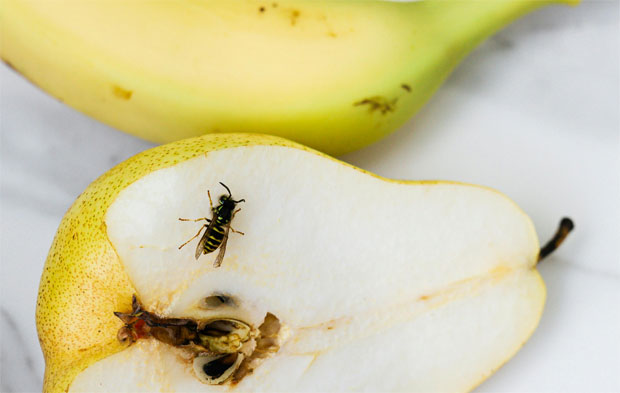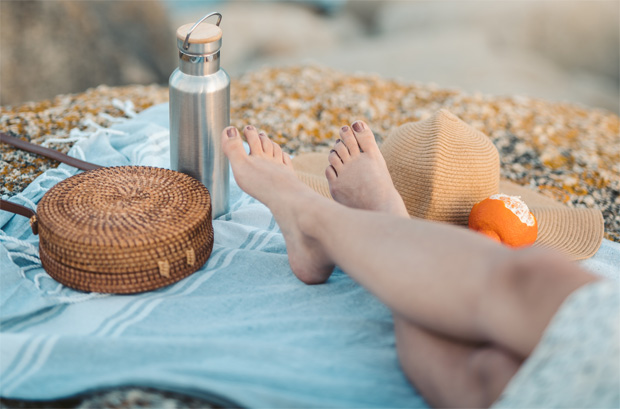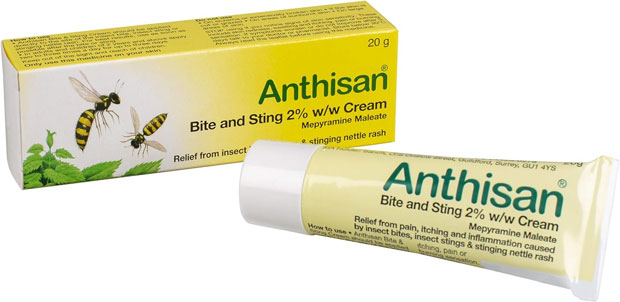What to do Immediately After a Wasp Sting

What to do Immediately After a Wasp Sting | AD
August is a lovely month. The weather is usually quite warm, sunny and reliable even here in the UK. The kids are off school and perhaps you’re enjoying some much-needed time off too. Unfortunately, August is also the month when wasps are most active! In this article, we’ll look at how families can protect themselves against wasp stings. Specifically, we will explore what to do immediately after a wasp sting.
When Do Wasps Come Out in the UK?
August is wasp season here in the UK. This is when the eggs have hatched and the young queens leave their nests to mate and also to find a suitable hibernation place before winter. It’s a busy time for the wasps!
Ellen Fitzgibbons from Wade Environmental, experts in pest management, throws some light on wasp activity in August. She says, “Towards the end of July, wasp nests start to die off along with the food supplies within the nest. The wasps then start venturing out in search of new sources of sugary food which is usually plentiful at this time because the weather is nice, people are having picnics and supermarkets are selling more barbecue food with sticky sauces. In many ways it’s the perfect storm and consequently we are stung more often. Wasps have a sharp sting that injects a small dose of venom. They can sting multiple times and the area can hurt for 1-2 hours. Keeping a tube of fast-acting topical antihistamine when you’re out and about means you can quickly get a bit of effective relief.”
What Kind of Wasps Sting in the UK?
There are estimated to be over 7,000 species of wasps in the UK according to the University of Gloucestershire. Most keep themselves to themselves though. The more social species are vital for a balanced ecosystem. They help control pests like greenfly and caterpillars and even play a role in pollination. Unfortunately, it is also these social wasps that come armed with their powerful sting. Here in the UK, the German wasp is the most likely to be the aggressive but all wasps can sting.

Wasps DO’s and DON’Ts – What Can I Do to Prevent Wasp Stings?
If you are wondering how you can minimise the risk of getting stung by wasps, you’ll be glad to hear that there are a few things that you can do. No, you don’t need to emigrate to Antarctica – which is the only wasp-free place on earth.
There are a few simple things that you can do to minimise the risk of being stung by a wasp:
- Avoid using scented skin and hair care products.
- Avoid wearing brightly coloured clothes when you’re outside.
- Wear long sleeves and trousers to protect bare skin.
- Stay calm if a wasp comes near to avoid aggravating it.
What to Do If You Get Stung by a Wasp?
In the event of being stung, you need to carefully scrape the stinger out of the skin with a blunt object. Pulling it out may release more venom so use something like a fingernail or credit card. Holding a cold compress to the sting site helps to reduce swelling and inflammation. If you have been stung on the arm or leg, keep it raised to also help reduce swelling. Lastly, apply an antihistamine sting cream like Anthisan Bite & Sting Cream to provide soothing relief.
Dr Marion Sloan, a Sheffield GP says, “You can get stung just about anywhere indoors or outdoors so my advice is to keep a topical treatment product containing an antihistamine to hand because it will soothe and cool and reduce the pain.”

Always Be Prepared and Have Wasp Sting Relief Ready
It’s a good idea to always keep a tube of Anthisan, the no.1 bite and sting cream, in your first aid kit at home and when on the go. Anthisan Bite & Sting Cream provides relief from the bites and stings of many insects including wasps, bees and mosquitoes and even nettle rash.
Anthisan Bite & Sting Cream is a tried and tested antihistamine cream that can be used to provide fast pain relief from the itching and inflammation caused by wasp stings. The triple-action antihistamine formula targets pain, itching and inflammation, making Anthisan Bite & Sting Cream the go-to treatment cream for relieving the discomfort of wasp stings.
Be prepared for wasps with Anthisan Bite & Sting Cream and take the sting out of August. Anthisan Bite & Sting Cream (contains Mepyramine Maleate) is available nationwide at Boots, Tesco, Sainsbury’s, Asda, Superdrug, Amazon and many independent pharmacies and retailers. Always read the label.
Collaboration.




